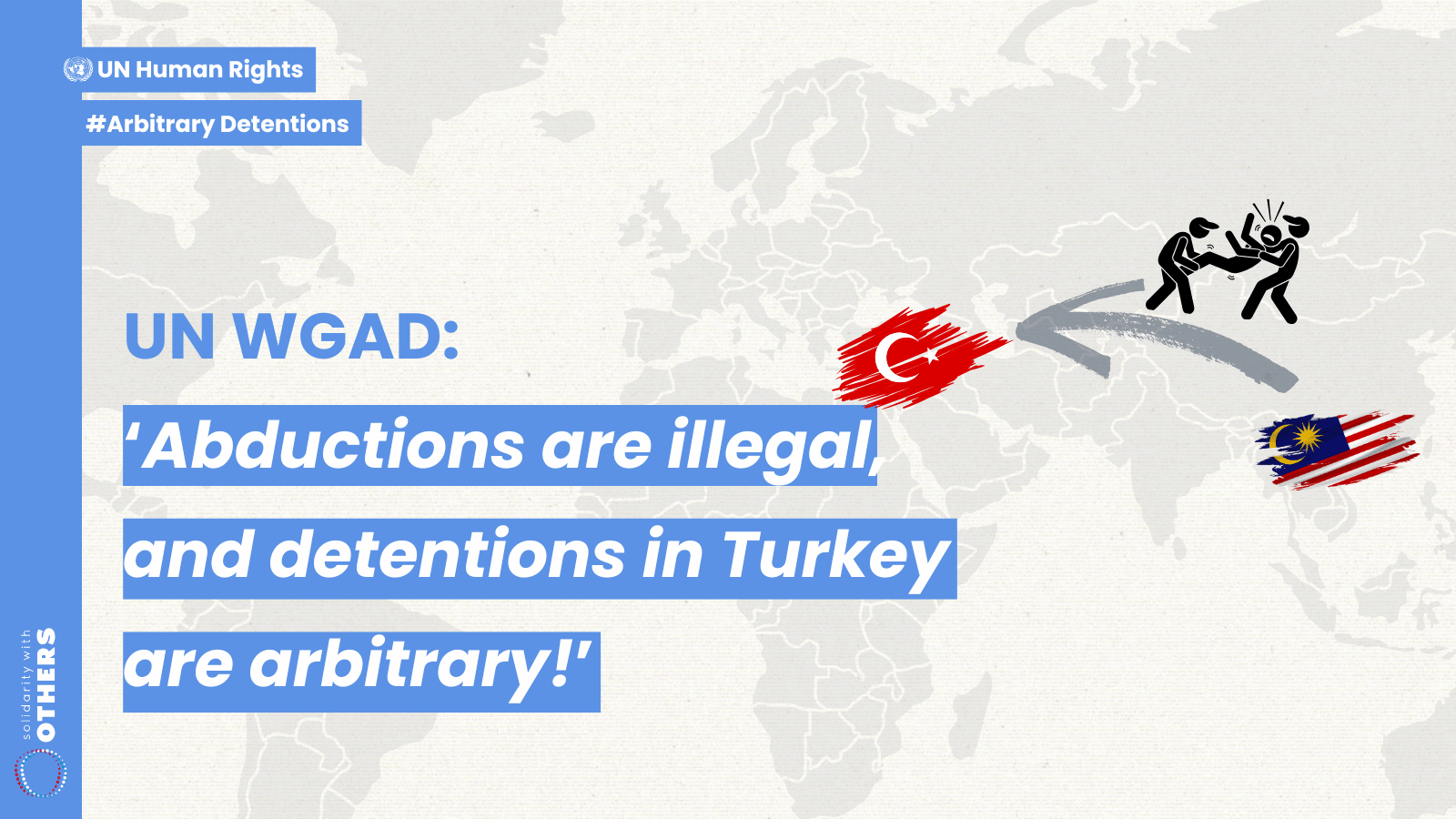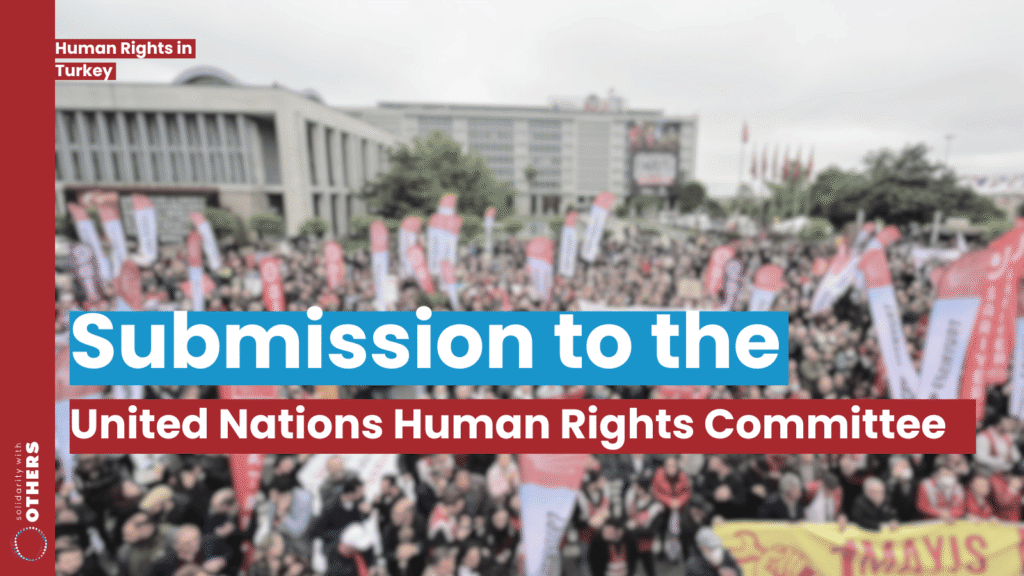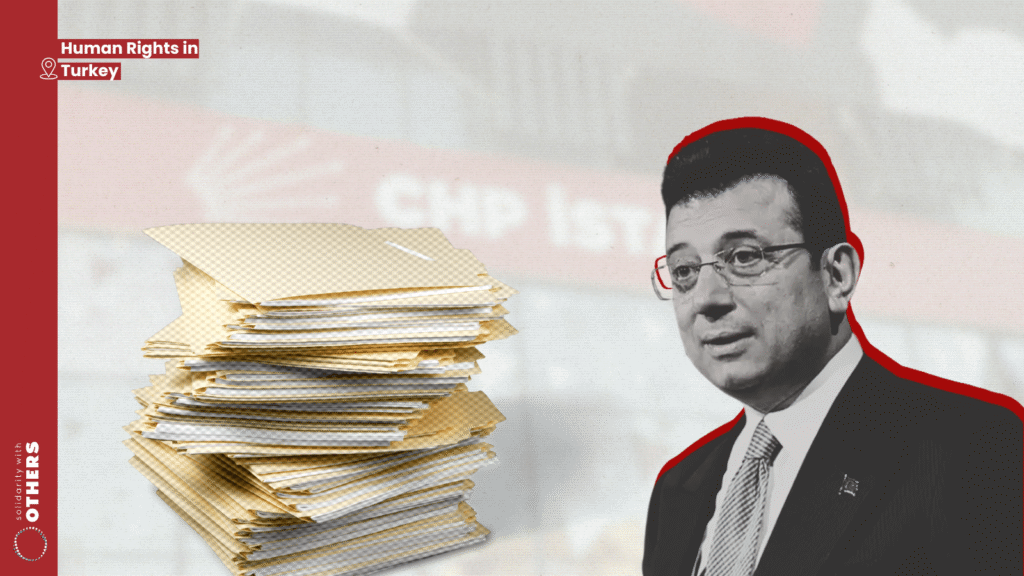In its ninety-third session, the United Nations Working Group on Arbitrary Detention (WGAD) issued Opinion No. 8/2022 concerning the cases of Alettin Duman and Tamer Tibik, Turkish nationals who were abducted in Malaysia and forcibly returned to Turkey in 2016. The Working Group concluded that both individuals were subjected to arbitrary detention in violation of international human rights law.
The Working Group, established by the UN Commission on Human Rights and currently operating under the mandate of the Human Rights Council, reviewed the cases in accordance with its methods of work. Communications were sent to both the Governments of Malaysia and Turkey. While Malaysia did not respond, Turkey submitted a reply on 15 February 2022.
The Case of Alettin Duman
Alettin Duman, born in 1968, resided in Kuala Lumpur where he worked as a school principal and served as Director of the Malaysian-Turkish Dialogue Institute. He was reportedly arrested near his home on 13 October 2016 without a warrant by individuals believed to be acting on behalf of the Malaysian authorities. The source claimed he was the first Turkish national to be abducted abroad and transferred to Turkey as part of Ankara’s global campaign against dissidents.
On 14 October 2016, while still in custody, Mr. Duman allegedly overheard officials admitting that he was not the intended target. Nonetheless, he was forcibly transferred to Turkey. Reports later surfaced suggesting that this transfer was part of a bilateral agreement, discussed at a meeting between Turkey’s Foreign Minister and Malaysia’s Prime Minister.
The Case of Tamer Tibik
Tamer Tibik, born in 1974, was also residing in Kuala Lumpur, where he worked as a businessman and served as Secretary-General of the Malaysian Turkish Chamber of Commerce and Industry. He was similarly abducted on 13 October 2016 from the parking lot of his English language course. Eyewitness accounts indicate he was handcuffed, blindfolded, and transported to an isolated building before being sent to Turkey the following day.
Mr. Tibik’s account highlights a broader pattern of persecution against individuals affiliated with the Hizmet movement. He had fled Turkey in 2015 to escape harassment and discrimination following the 2013 corruption investigations and the 2016 attempted coup. After his arrival in Malaysia, Turkish authorities reportedly continued to target him through public accusations and the seizure of affiliated institutions.
UN Findings
In its opinion, the Working Group emphasized the lack of legal basis for the arrests and transfers, as well as the failure to uphold the individuals’ right to due process. The detention was found to be arbitrary under Categories I, II, III, and V of the Working Group’s criteria. The WGAD further criticized the prolonged administrative custody and the discriminatory nature of the detentions based on political or other opinions.
The Working Group reiterated that the burden of proof lies with the governments once a prima facie case of arbitrary detention is established. Given Malaysia’s failure to respond and Turkey’s limited engagement, the Working Group found the allegations credible and substantiated.
It also noted that while Mr. Tibik was conditionally released pending appeal, Mr. Duman continues to be detained under difficult conditions.
The Working Group called for the immediate release of Alettin Duman and the full remedy of both individuals, including compensation and guarantees of non-repetition. The cases underscore ongoing concerns about transnational repression and the misuse of legal systems to target political opponents abroad.
https://www.ohchr.org/sites/default/files/2022-06/A-HRC-WGAD-2022-8-MYS-TUR-AEV.pdf





